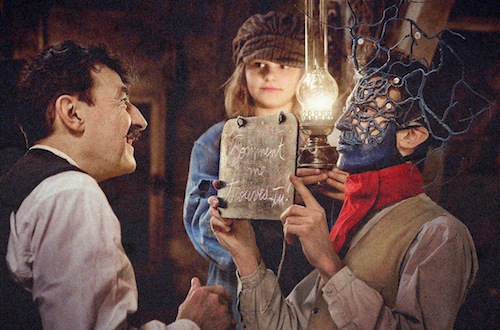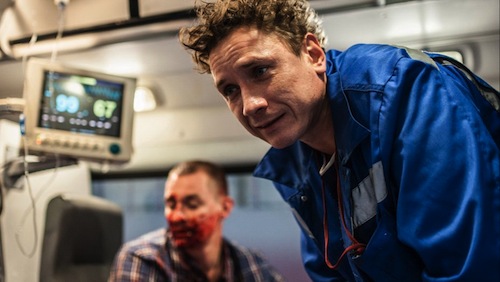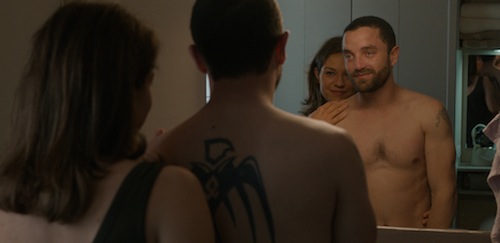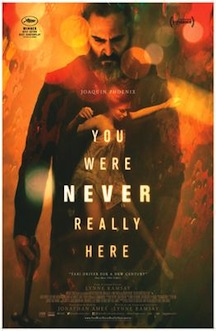Directed by Albert Dupontel
Country: France / Canada
French post-war drama film "See You Up There" develops with shades of Jean-Pierre Jeunet and Louis Malle. This stylish period drama, set in France in the 20’s, addresses topics such as friendship, war and family trauma, corruption, and survival. Actor/director Albert Dupontel ("Bernie") adapted Pierre Lemaitre’s novel The Great Swindle and gave himself the main role. He is Albert Maillard, a former accountant who tells his peculiar WWI story in a Moroccan police station.
Maintaining a moderate to fast pace and leaning on an objective storytelling, the film displays a French funny side regardless of the sadness associated with the fictional account. Yet, we can glimpse a bit of the American classic mood in its demeanor. The merit goes to Dupontel, whose charming performance always brings some natural humor in the way he talks and moves.
In 1918, soldier Maillard was able to survive the brutal German attacks, without ever imagining that the biggest trouble would come from his own superior, captain Henri Pradelle (Laurent Lafitte), a monstrous tyrant. Seen as a sanguinary sadistic, the latter didn’t want the war to end and, in a pure act of madness, starts shooting his own soldiers from behind, confirming his heinous conduct as a leader. While trying to escape the unscrupulous captain, Maillard falls in a deep, narrow trench where there was a dead horse. It was his good friend Edouard Péricourt (Nahuel Pérez Biscayart), a talented draughtsman, who saved his life. During this process, Edouard is shot in the face, becoming facially disfigured.
Taken to an infirmary, the speechless man gesticulates to ask his friend to kill him since he doesn’t want to be sent back home. He begins to panic at the thought of seeing his father again, the bitter president Marcel Péricourt (Niels Arestrup). But of course, anyone could tell that Maillard was not tailored to kill not even a fly, so, he managed to give his friend a false ID and hide him in a secret place, informing his family that he had died like a hero while serving the country.
In the meantime, Maillard is forced to steal morphine from other handicapped war veterans to give it to Edouard, who, refusing any type of surgery, hides his face behind a mask. In order to communicate, he uses a personal ‘translator’, a neighbor kid named Louise (Héloïse Balster), who understands him better than anyone. Despite spending his days pacifically drawing, he becomes anxious after finding out that Pradelle, who decided to make a living with a corrupt business involving soldiers’ corpses, is on the verge to marry his sister, Madelaine (Émilie Dequenne). Struggling to eke out a decent existence, the two friends decide to set up a con scheme, using the artist’s brilliant drawings as a source.
Despite the conventional storytelling, there’s a lot to like in Dupontel’s best film to date. In addition to the noticeable costume design, the mise en scene is memorable and the rich cinematography feels vivid. The pans and zooms operated by the camera are quite active and efficient, whether in its dynamic or rigid modes, and, fortunately, the war depictions were never too visceral to superimpose the aggravating family trauma. Even heartening at the end, there is a bittersweet taste that fills our mouths when we think how easy it is to destroy a human life.




























































